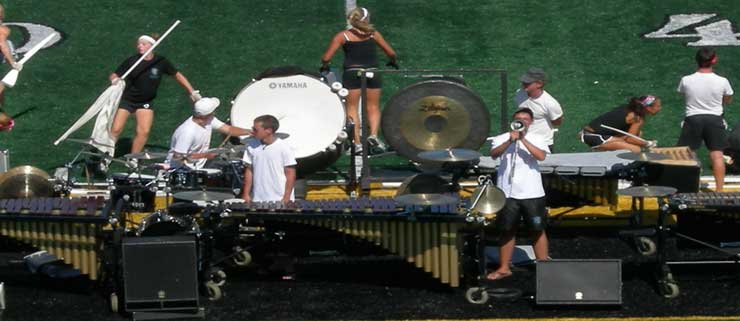.jpg) Concert etiquette is an important part of good manners that seems to be taught less and less in our public schools. The rules of good concert etiquette are relatively easy to follow and should be taught in every school music classroom. Consider the following list of rules and pass them on to other students so that your next school concert might be enjoyed by everyone in attendance.
Concert etiquette is an important part of good manners that seems to be taught less and less in our public schools. The rules of good concert etiquette are relatively easy to follow and should be taught in every school music classroom. Consider the following list of rules and pass them on to other students so that your next school concert might be enjoyed by everyone in attendance.
Visitors at classical or contemporary music concerts often have their enjoyment of the performance damaged by the poor manners of another patron sitting nearby. At a rock concert this might not be a big problem, but for classical music concerts or small ensemble, chamber type performances it certainly can be. Having poor concert etiquette is not only rude to the other listeners, but it is also a sign of disrespect to the performer. A patron of a classical music concert should remember and follow these common rules of concert etiquette :
Good Concert Etiquette Means Using Good Manners and Respecting Those Around You
A guest at a serious music concert should enter and exit the room only between selections. Whenever possible a guest should wait until a song has ended and the audience is applauding before moving. The only exception to this cardinal rule of concert etiquette is to remove a restless or crying child or if the guest feels ill.
Visitors should not talk during a performance. If something must be said to a neighbor always whisper directly into their ear so that those around you cannot hear your comments. In the same vein, turn any cellular phones off or set them to vibrate only. From the performers point of view few things are as distracting as the chime of a cell phone in the middle of a song.
Good Concert Etiquette Means Knowing What Is Expected During A School or Public Performance
Classical music concerts differ from pop music in that often it is customary to applaud when the conductor or musicians first comes out on the stage. Proper etiquette for a symphony concert or concert band performance dictates that the guests should applaud at the conductor's entrance. For small ensembles or soloists the guests should applaud for the performer. He or she will bow to acknowledge the audience's applause and the concert will begin shortly afterward.
While it is always customary to applaud at the end of a song, remember that some classical pieces of music are broken down into "movements." An example of this would be the Nutcracker Suite. Suites and other such songs have brief breaks in between each part where the music will stop for a few seconds. Watch the conductor (and those around you) and do not applaud until the conductor has dropped his hands and has turned around to acknowledge the audience.







 Scroll down to view the comparison chart of over a dozen different portable digital audio recorders.
Scroll down to view the comparison chart of over a dozen different portable digital audio recorders.